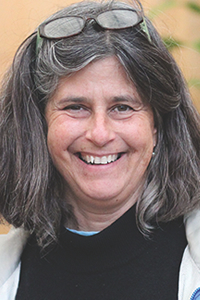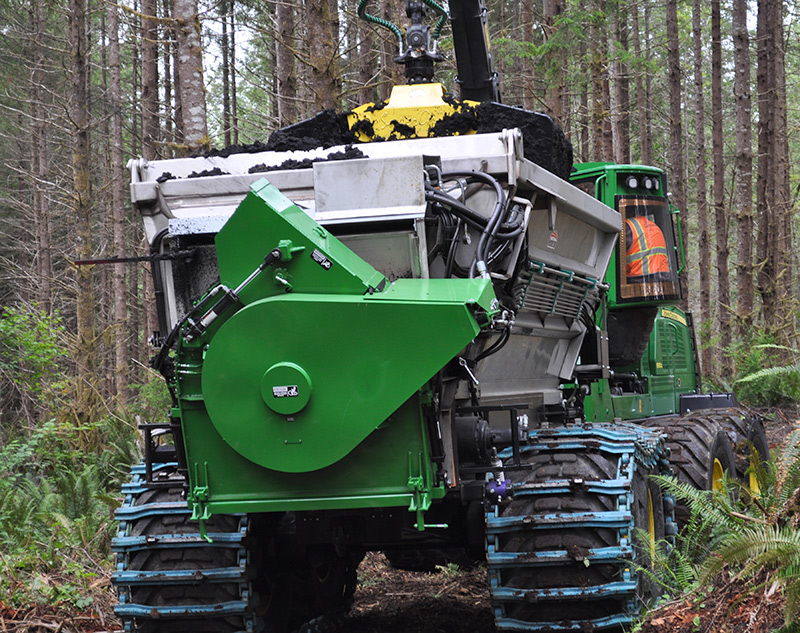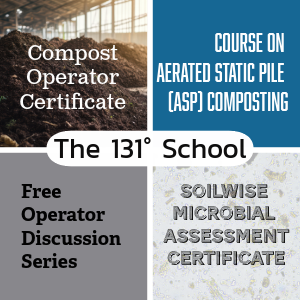Top: Biosolids land application site in Washington State. Photo courtesy of King County
 Sally Brown
Sally Brown
The National Resources Conservation Service (NRCS), a division of the U.S. Department of Agriculture, can help to encourage changes in agricultural practices through implementing programs that support or provide financial assistance to growers who implement beneficial practices. Recently, the NRCS has piloted a program to compensate farmers who use select composts and biochars as a means to restore soil health and increase soil carbon reserves. Known as the Conservation Practice Standard for Soil Carbon Amendment, this program was tested in a few states and a draft protocol was posted for public comment prior to it being adopted on a national scale.

Biosolids from King County are applied to forest land using a machine designed to fling material evenly into the trees. Photo courtesy of King County
The first draft of this proposal allowed for use of biosolids but only if they were composted. The W4170 committee — a group of scientists whose research focuses on both the risks and benefits associated with biosolids use — commented. The Committee noted there is a wide body of research on biosolids that shows the benefits for soils and the environment when they are used as regulated. Benefits are measured in tons and kilograms, i.e., the tons of carbon stored in soils with each application and the kilograms of nitrogen and phosphorus recycled. Benefits can also be measured in acre feet of irrigation water savings and tons of yield increases in crops grown in these soils.

Carrot grown in author’s garden. The soil is amended with Tagro, a Class A product manufactured by the City of Tacoma, Washington.
The second draft of this Soil Carbon Amendment standard disallowed use of any type of biosolids. Scientists on the Committee were told in a conversation with NRCS officials that this was done because of concerns about PFAS (perfluorinated organic compounds) in biosolids. These are typically measured in parts per billion or 0.000001 grams. The Committee authored a second letter (submitted during the public comment period), which is reprinted below in this Connections column. In the letter, as you will read, the Committee strongly encouraged including biosolids as a soil amendment in this standard and provided evidence for the safety of the practice. The authors of this letter included Linda Lee, a long-time member of the Committee, professor at Purdue University and one of the leading national experts on PFAS in the environment. Ian Pepper, from the University of Arizona and another scientist who is not to be readily dismissed, was another signee.
These letters illustrate the benefits and safety of biosolids use. The public comment period ended on June 16, 2022. It is not clear if NRCS has paid attention. It is time to understand the power of tons of benefits rather than focusing on 0.000001 grams of potential harm.
Sally Brown, BioCycle Senior Adviser, is a Research Professor at the University of Washington in the College of the Environment.













